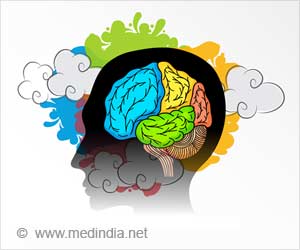
The researchers identified a key protein responsible for this process and successfully used a drug compound to block the effect, offering a potential new avenue for drug discovery and treatment.
The study, published in proceedings of the National Academy of Sciences was co-funded by Briain's National Institute for Health Research Biomedical Research Centre (NIHR BRC) for Mental Health at the South London and Maudsley NHS Foundation Trust and King's College London.
Depression is a common mental disorder worldwide affecting more than 350 million people of all ages.
The World Health Organisation estimates that by 2030, depression will be the leading cause of the global burden of disease.
In India, a study in 2011 found that around nine per cent of people reported having an extended period of depression within their lifetime and nearly 36 per cent had suffered from a major depressive episode (MDE).
Advertisement
Current anti-depressant medication is only successful in treating depression in about 50-65 percent of cases and fewer than half of those affected worldwide receive such treatment.
Advertisement
"With as much as half of all depressed patients failing to improve with currently available medication, developing new, more effective anti-depressants is a priority," said Carmine Pariante of the King's College Institute of Psychiatry and lead author of the paper.
"In order to do this, we need to understand the abnormal mechanisms that we can target. Our study shows the importance of conducting research on cellular models, animal models and clinical samples, all under one roof in order to better facilitate the translation of laboratory findings to patient benefit," he said.
In the study, the multi-disciplinary team of researchers studied cellular and animal models before confirming their findings in human blood samples.
Christoph Anacker of the King's College Institute of Psychiatry and co-author of the paper said: "Because a reduction of neurogenesis is considered part of the process leading to depression, targeting the molecular pathways that regulate this process may be a promising therapeutic strategy."
Source-IANS













